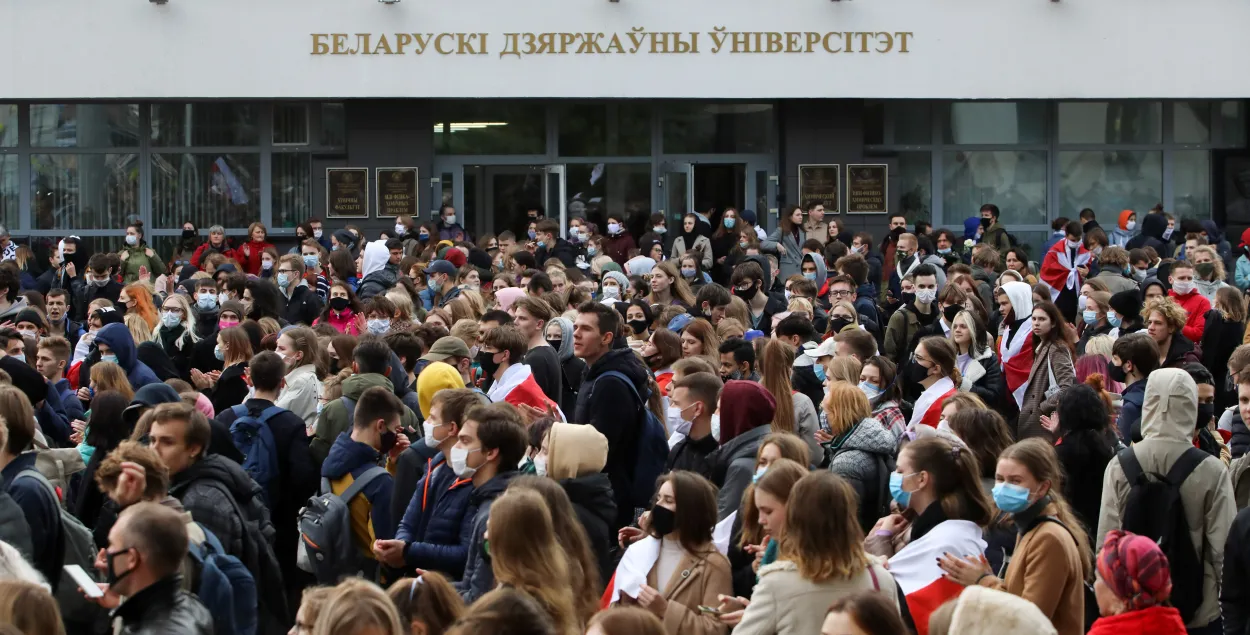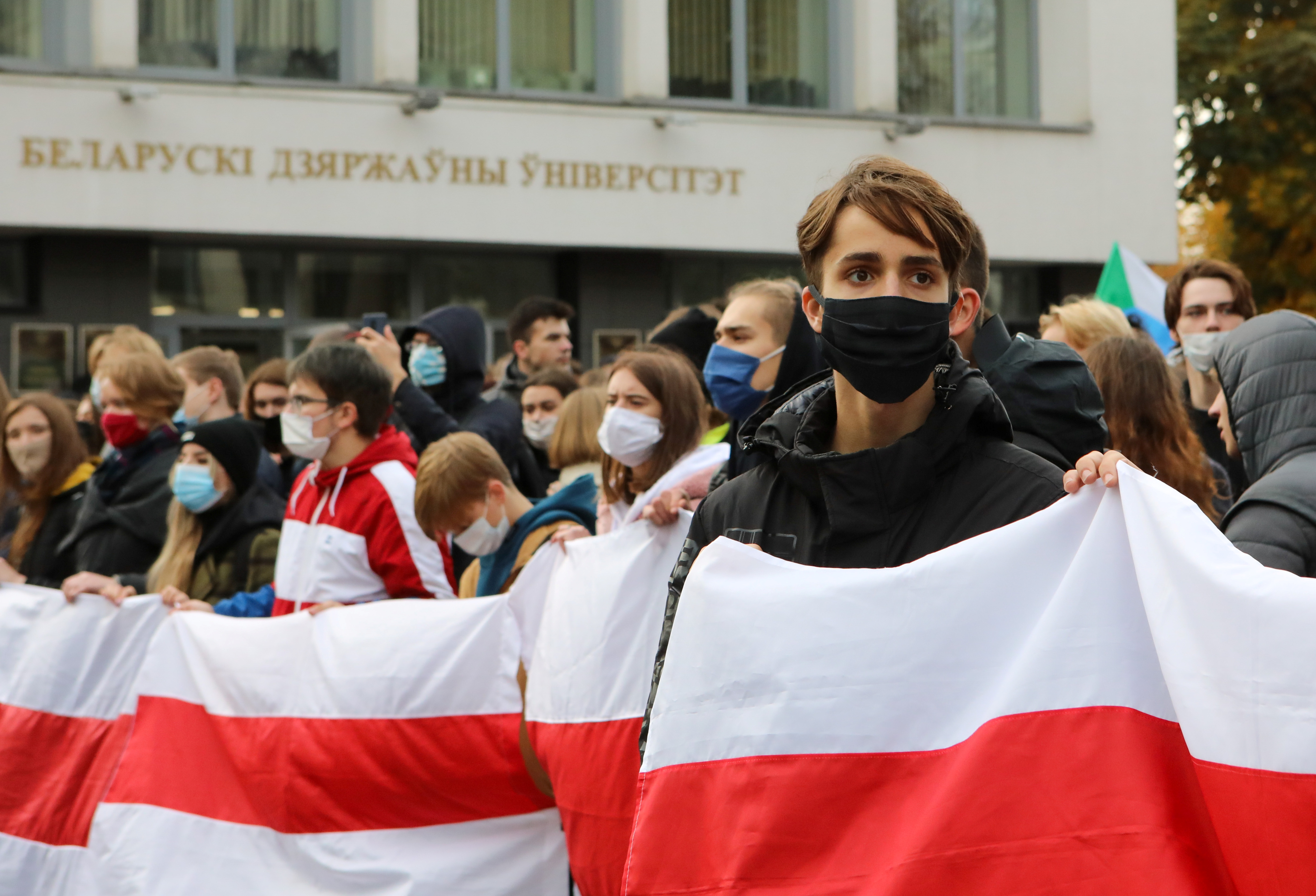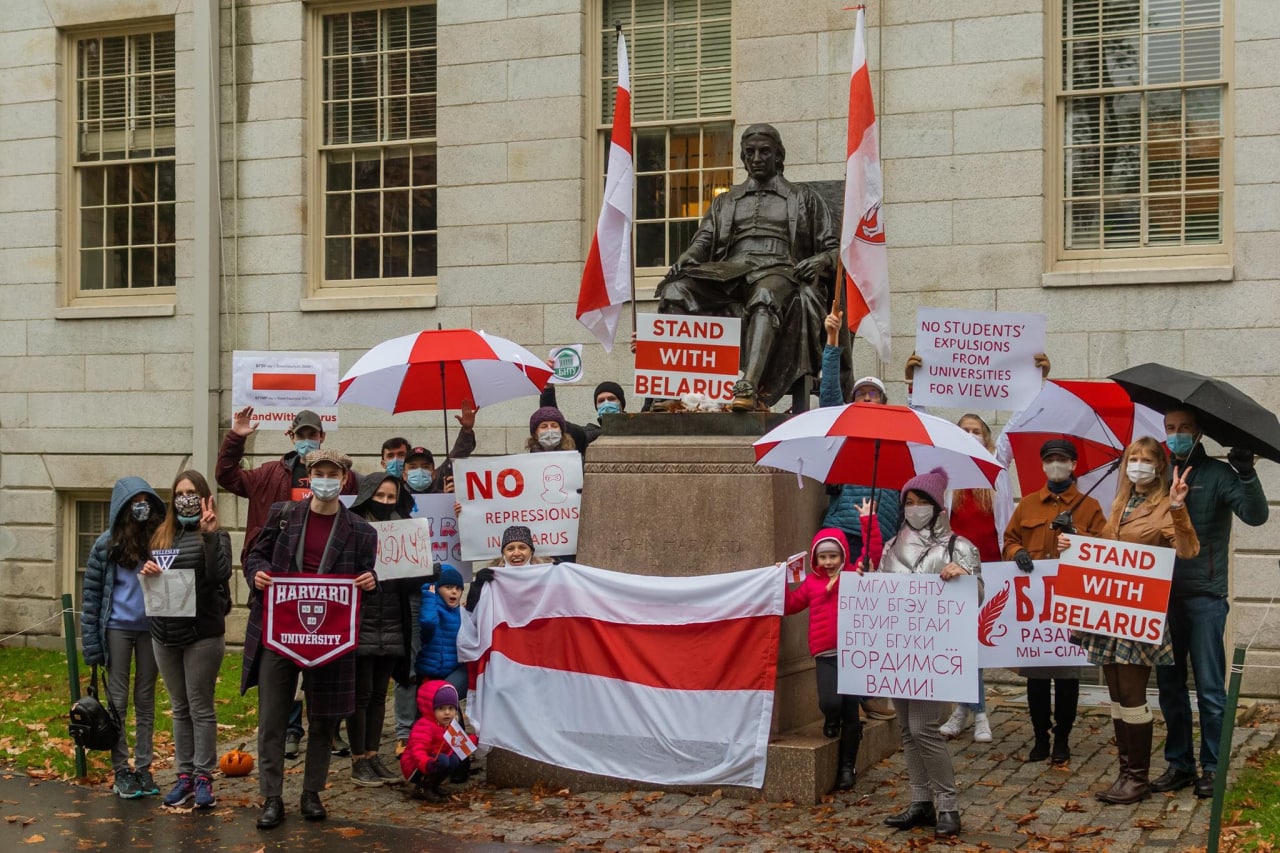Complete isolation or support: will Belarus remain in the Bologna process?

Students at a protest in Minsk / BelaPAN via REUTERS
The authorities continue to put pressure on universities: the most active students are expelled, teachers and professors are fired. In some universities, students are obliged to sign papers prohibiting taking photos in universities or "breaking silence." This pressure is beyond the rules of the Bologna process. Participation of Belarus in the Bologna Process also implies observance of academic freedoms.
Euroradio is trying to find out whether Belarus will remain in the Bologna process.
Belarus is Europe but not quite
Belarus has been part of the Bologna Process since 2015, which means not only certain opportunities for the country (academic exchange, recognition of diplomas abroad), but also obligations to ensure all standards. This implies the mobility of students and staff, promotion of European cooperation in education, academic freedoms, etc.
Belarus has failed to meet a number of requirements of the Bologna process. For example, we have no academic freedom. Besides, rectors are not elected at the university but are appointed by the president. Professor Uladzimir Dunayeu, a member of the Public Bologna Committee, claims no one can "force" universities to follow the rules.
"What we can do is advise if someone is ready to listen to this advice. You can’t be expelled from the European Higher Education Area. The EHEA includes countries that violate certain norms. I mean Azerbaijan, Turkey, and Russia. The European Court of Justice found a violation of academic freedom in Hungary. I do not think that as much as a moral condemnation of academic repression in Belarus will take place," says the professor.
Meanwhile, another repression has recently appeared. Lukashenka demanded not to recognize foreign diplomas of higher education.
— The threat not to recognize diplomas, of course, contradicts not only the Bologna commitments but also the Lisbon Convention signed by Belarus in 2002 (decree No. 5 of January 4, 2002). But will that stop them? Another thing is that we should not overstate the importance of such statements, — comments Uladzimir Dunayeu.
According to him, discrimination against foreign diplomas had existed in Belarus before the threat, also without any legal grounds.
“A European non-achiever” is how Europe still sees Belarus, — said Dunayeu. At the same time, according to him, the country "receives gifts", which angers Dunayeu.
— In particular, the World Bank has recently allocated 100 million to the Ministry of Education for higher education. Before that, the World Bank allocated 150 million for secondary education. I don't think the director [of the World Bank office. - Euroradio] Alex Kremer feels responsible for what is happening in Belarusian education. They should not punish Belarus, nor should they encourage the Ministry of Education with money. It seems that the EU is beginning to understand this. But the World Bank remains deaf and continues to encourage outrage, — said Dunayeu.
Should we expect an international reaction?
Sasha Kuzmich, a member of the Public Bologna Committee, told Euroradio that international reaction to the events in Belarusian universities is significant. There are actions of solidarity, and a resolution on Belarus signed by the European Student Union. The Ministerial Conference of the Bologna Process Participating Countries will take place next week and the situation in Belarusian universities may also be included in the agenda.
"The international student community is very sympathetic to the Belarusians and expresses solidarity: with actions, statements, and political actions," says Kuzmich.
The representative of the committee believes manifestations of solidarity and pressure from the international academic community may stop Western partners from cooperating with Belarusian universities and with the Ministry of Education. Today Belarusian universities cooperate with Western universities, including student and staff exchange programs.
“A complete boycott is unlikely, but there is a high probability that persons directly responsible for the pressure will no longer get the benefits of the Bologna Process, such as business trips, research projects, etc,” Sasha notes.
Our interlocutor explains that it is impossible to completely expel our country from the Bologna process, but a resolution may be adopted at the Ministerial Conference.
"The resolution may lead to new control mechanisms. For example, there was a special Advisory group for Belarus in 2015-2018. There is no expulsion mechanism, but there had been no roadmap mechanism either [it was created when Belarus joined the Bologna process. — Euroradio], therefore the decision can be made outside the standard templates," Kuzmich says.
On the other hand, the international reaction leads to new opportunities for Belarusian students and staff. Many countries have already announced their readiness to enroll people from Belarus in European universities. The Kalinowski Scholarship Program has expanded significantly.
Follow Belarus news via Euroradio's Telegram.
Daily videos and chats with guests on Belarus developments via Youtube. Subscribe here.





















